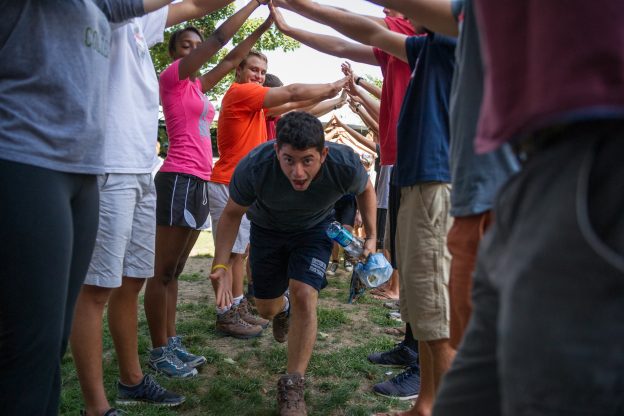Title: “Worst Class Ever”
General Information:
Verbal Lore: Insult, Folk Speech
Customary Lore: Superstition, Custom
English
USA
Informant Data:
Raiden Meyer is a member of the class of 2020 at Dartmouth. He is originally from San Francisco, California, and lives in the Mid Fayerweather dorm on campus. He is involved in the Dartmouth Endurance Racing Team and the Advertising Team at Dartmouth. The informant was interviewed on 11/2/16, in Collis at Dartmouth College.
Contextual Data:
The informant experienced this verbal lore during homecoming his freshman fall. The informant was not familiar with this piece of Dartmouth Freshmen Folklore until he heard these shouts during the Freshman Sweep before the bonfire, and while running the laps around the bonfire on Friday night of homecoming in 2016. The informant quickly learned that this shout, directed at freshmen, was done each year during homecoming and was part of Dartmouth tradition.
Item:
Every year, on the Friday of Dartmouth homecoming, upperclassmen at Dartmouth will shout, “Worst class ever!” at freshmen as they pass by, either during Freshman Sweep, or as they run around the bonfire itself. It is unclear when this piece of verbal lore first developed, but it has clearly been around for a long time at Dartmouth. The upperclassmen will shout this in some variation, but the general idea is that the freshmen will in fact, go down in Dartmouth history as the “worst class ever,” unless someone from their class touches the homecoming bonfire. This item of Dartmouth Freshmen Folklore follows the format of superstitions, in that, in order to prevent that year’s class from being the “worst class ever,” they need to continue the tradition of touching the homecoming bonfire.
Transcript:
“I didn’t hear about the “worst class ever” chants until the Friday night of homecoming. I definitely heard the “worst class ever” shouts as we passed students during the sweep and ran around the bonfire. I never took it offensively and could tell that it was a Dartmouth tradition to call freshmen that. In a way I enjoyed that the upperclassmen all still came to the bonfire and even if the shouts were a negative thought, it was sort of encouraging and welcoming to have a lot of the Dartmouth community surrounding us. Also, overall I heard much more positive shouting than negative shouting and just being surrounded by so much tradition really made me feel like a part of Dartmouth.”
Informant’s Comments:
“I think that this shouting during the homecoming bonfire is interesting because it is kind of an unwritten tradition that the freshman class is part of each year. I will definitely be shouting ‘worst class ever’ at the freshmen class next fall at the homecoming bonfire.”
Collector’s Comments:
Looking back at Freshman Sweep as a current senior, I would agree with the informant when she says that it really wasn’t a huge part of my first homecoming at Dartmouth. Although it was fun to be a part of the first-year tradition, I think that running around the bonfire was something that I will remember for much longer.
Collector’s Name: John Mayberry
Tags/Keywords: Verbal Lore, Worst Class Ever, Superstition, Insults, Folk speech, Dartmouth Homecoming







